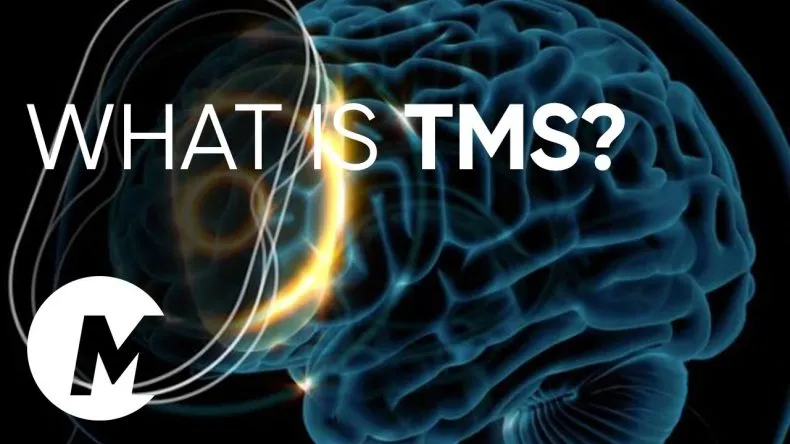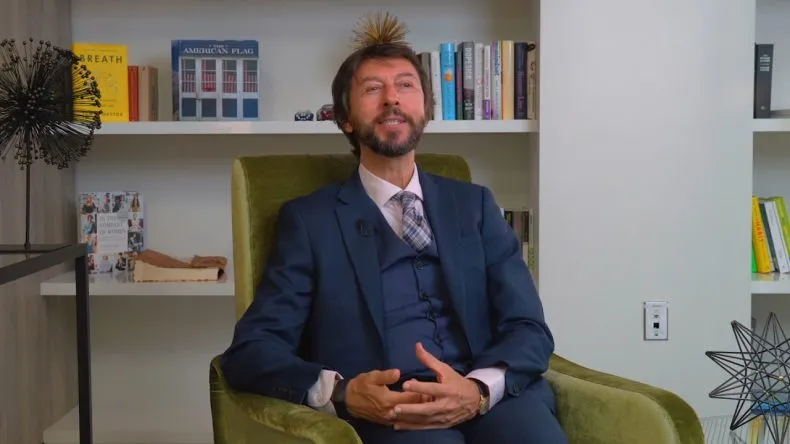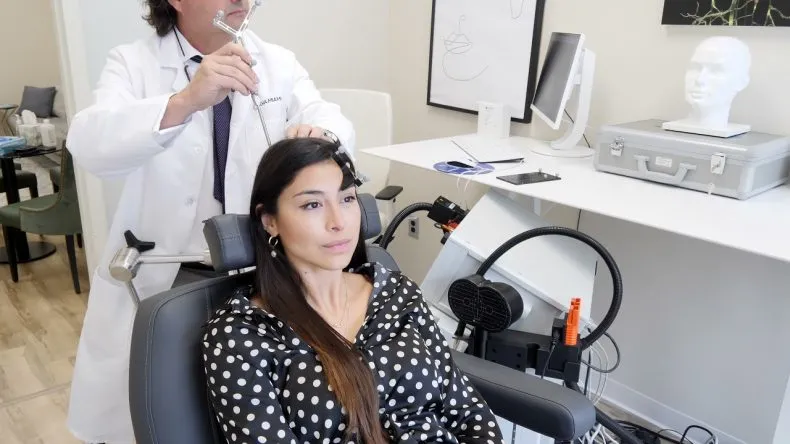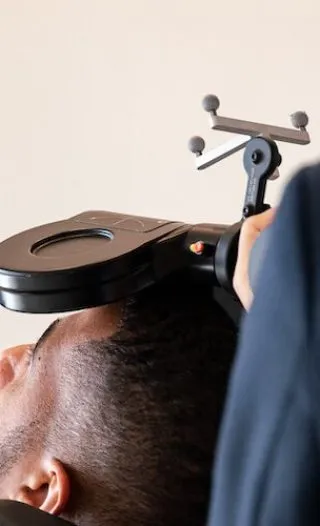The Science Behind TMS – How Does TMS Treatment Work
Transcranial magnetic stimulation therapy (TMS) is a novel treatment for a range of mental health conditions at the forefront of medical science. It is FDA-approved for the treatment of clinical depression, obsessive compulsive disorders, smoking cessation, and many clinical studies have shown important results in effectively treating anxiety disorders, PTSD, and substance use disorders.
- The Science Behind Tms How Does Tms Treatment Work
- A Treatment For Depression Anxiety Disorders Ptsd And Addiction
- A Safe Fda Approved Therapy
- Major Depression
- Anxiety Disorders
- Addictions
- Obsessive Compulsive Disorder Ocd
- Tms And Rtms What Is The Difference
- What To Expect During Tms Treatments
- Tms Treatment Sessions
- Benefits Of Tms Therapy
- Potential Side Effects
- How To Get Started
TMS is a non-invasive procedure that works by passing gentle magnetic pulses across the surface of the head. These pulses penetrate the scalp and stimulate certain areas of brain cells beneath. In general, lower frequency pulses calm brain activity, and higher frequency pulses increase it. These changes can have a significant impact on mood and behavior.
TMS is a painless procedure that has no lasting side effects. In general, it is most effective if you participate in multiple sessions over some time, with a certain time window in between each session. Typical courses offer daily TMS sessions for around four to six weeks.
A Treatment For Depression, Anxiety Disorders, PTSD, and Addiction
Medical doctors apply TMS in a slightly different way depending on the condition they are treating. People with clinical depression usually received stimulation of the dorsolateral prefrontal cortex area on the left side of the brain, as approved by the FDA.
Following the success of TMS as a treatment for depression, scientists began to explore its use as a treatment for anxiety, PTSD and many other neurological and psychiatric conditions.
For people living with anxiety who are unable to benefit, or only partially benefitting, from cognitive therapies or pharmacotherapy, TMS could be a life-changing treatment. At GIA, we offer TMS as a treatment for anxiety disorder, addictions, OCD, PTSD, as well as clinical depression.
Recent groundbreaking research has also shown TMS to be an effective treatment for substance use disorders and behavioral addictions. GIA’s founder, Dr. Antonello Bonci, is a world-leading expert and researcher on the potential of TMS in these fields.
Substance use disorders like alcoholism or cocaine addiction cause significant changes in the brain. They affect reward pathways, which cause urges to seek or use a substance, and influence dopamine production and transmission.
TMS therapy can target these areas of the brain, with promising results in the improvement of both cravings and behavior. TMS therapy may increase abstinence, reduce cravings, and help improve symptoms of substance abuse like memory lapses and decreased cognitive performance. At GIA, we are proud to offer this innovative treatment to patients suffering from all forms of addiction.
A Safe, FDA-Approved Therapy
TMS is a painless, FDA-approved therapy with fewer side effects than antidepressants. You stay awake throughout the session and can interact with the therapist. Currently, TMS has been approved by the FDA for the treatment of major depressive disorder, OCD, smoking cessation and anxiety symptoms in people with depression.
The magnetic pulses involved in TMS therapy only reach about two to three centimeters into the brain, right below the treatment coil. The pulses are focused to maximize effects on other brain areas connected to the area of stimulation, to have a larger therapeutic effect.
“Having a facility that is purpose-built as a mental wellness center makes a real difference. Every space is light and calm and has everything you need to feel comfortable and focused during treatment.” – C.J.
Major Depression
Most people experiencing depression have lower levels of brain activity in their prefrontal cortex, the area of the brain responsible for emotional and mood regulation and physical pain. Transcranial magnetic stimulation therapy stimulates nerve cells in this area, increasing brain activity.
So when people ask, “Does TMS work?” you can rest assured that many studies support the benefits of using TMS to treat depression, primarily when other treatments have not worked. Around 50% to 60% of people with treatment-resistant depression have experienced a decrease in their symptoms or complete remission after trying TMS.
Anxiety Disorders
While people experiencing symptoms of depression show decreased brain activity in their prefrontal cortex, those who have anxiety exhibit a hyperactive amygdala. So, in this case, the magnetic energy does not have to activate but slow down a particular brain region.
As we mentioned initially, TMS works with low and high frequencies. To slow down brain activity, low-frequency magnetic pulses are used. Repetitive transcranial magnetic stimulation treats anxiety by lowering nerve cells to normal activity levels.
Addictions
Thanks to the pioneering work of Dr. Antonello Bonci (founder of GIA Miami), repetitive transcranial magnetic stimulation (rTMS) is a non-invasive treatment for addictions.
Dr. Bonci and his colleagues proved that people suffering from addictions were more likely to engage in emotional regulation and healthy coping skills by increasing the prefrontal cortex activity. The results of these clinical trials and studies lead to C.E. approval in Europe for the use of TMS for treating addictions.
Obsessive-Compulsive Disorder (OCD)
Like anxiety disorders, people experiencing OCD can show hyperactivity in some brain areas, leading to repetitive and obsessive behaviors. rTMS therapy seeks to lower the activity of those neurological networks to maintain balance.
Besides these mental health conditions, TMS therapy can alleviate symptoms of autism, PTSD, chronic pain, and others. Now more than ever, scientists are perceiving the benefits of this therapy to treat conditions that may otherwise be resistant to medication or psychotherapy.
TMS and rTMS -What Is the Difference?
Perhaps you have noticed that we sometimes talk about transcranial magnetic stimulation (TMS) and other times about repetitive transcranial magnetic stimulation (rTMS). Both concepts refer to the same brain stimulation treatment. Within the TMS therapy system, there are three modalities:
- Single-pulse – One magnetic pulse is applied every few seconds.
- Paired-pulse – Two pulses of different intensity are used in the same brain hemisphere to inhibit or activate neurons.
These two modalities aim to examine the activity level in the target brain areas. Finally, the third modality seeks to stimulate change:
- Repetitive TMS – In this case, multiple magnetic pulses are applied rapidly during a specific time and intensity.
What To Expect During TMS Treatments
Before creating a treatment plan that can help you heal from any emotional, mental, or physical wound, we need to get a better picture of what is happening in your mind and body. Many people come to us with a pre-existing diagnosis, and others do not know why they feel the way they do. Therefore, the first step before starting treatment is an evaluation.
Many people worry when they hear the words ‘psychiatric’ or ‘psychological’ evaluation. Unfortunately, there are a lot of stigmas and misconceptions surrounding these terms. When we say that the first part of your treatment consists of completing a psychiatric evaluation or a psychological assessment, our goal is to understand your needs a little bit better.
What can you expect during this initial phase? We may ask you things about your current symptoms, how long you have been experiencing them, the types of treatments you sought in the past, and how you see yourself in the future (expectations, dreams, goals). We may also ask you about any past or current diagnoses and family history.
We understand that talking about your life may feel uncomfortable, but rest assured that we will not push you to share information you are not ready to share. Our goal is to promote your mental wellness and help you manage your symptoms.
After getting a better idea of your emotional, mental, and physical needs, we will design a TMS treatment plan to address your symptoms and promote long-lasting change.
TMS Treatment Sessions
TMS therapy sessions range from 30 to 40 minutes, depending on each case. TMS treatments often last from four to six weeks, taking place five days per week.
You are free to read, watch videos, relax, meditate, or talk to your TMS technician during the session. We encourage people to use the time to engage in activities that make them feel calm and comfortable.
Benefits of TMS Therapy
Numerous benefits are associated with TMS therapy. For example, TMS therapy is beneficial because:
- it is a non-invasive and well-tolerated treatment.
- it does not require anesthesia.
- it does not require hospitalization.
- studies support that TMS treatments cause few to no side effects.
- you can go to the TMS sessions and drive back home by yourself.
- you will be able to continue with your daily routines during the length of your treatment, including work and college.
- TMS therapy also works well with other types of talk therapies and treatments.
Potential Side Effects
Transcranial magnetic stimulation therapy usually causes little to no side effects during and after treatment. However, like with any other medical treatment, there is a small chance people will experience them. With TMS, these are usually minor and subside quickly after treatment, with no knock-on to the efficacy of the treatment.
People with hypersensitivity have also reported experiencing hearing problems due to the noise of the TMS machine. However, every client is given earplugs before a session starts to protect their ears, so this should not be a problem. If this happens, feel free to share any concerns you may have related to hypersensitivity with your doctor. If experienced, all of these symptoms resolve shortly after a TMS session. So far, there are no reports of long-term side effects from rTMS therapy.
If you are pregnant or have a history of any of the following, please make sure to talk to your TMS physician before treatment starts.
- Brain injury
- Brain damage
- History of seizures
- History of epilepsy
In addition, if you have any metal implants such as electrodes to monitor brain activity, metal devices implanted in the brain-head-neck area, aneurysm clips, bullet fragments, deep brain stimulators, or any other metal or magnetic device implanted in your body, it is in your best interest to inform a technician.
Talk to your TMS physician about your past and current history of medical and mental health conditions and any medication you are taking before starting rTMS treatment. Doing so ensures that this particular treatment is suitable for your needs.
How To Get Started?
At GIA Miami, we have put all our care into creating a safe space for healing. We know that the world we live in sometimes can feel too chaotic, loud, and fast-paced. Unfortunately, none of these are helpful for mental wellness, and that is why we have created a peaceful environment where you can unwind. Most importantly, we have gathered a team of compassionate and welcoming professionals that are ready to help you.
After completing treatment, one of our previous clients shared that “having a facility that is purpose-built as a mental wellness center makes a real difference. Every space is light and calm and has everything you need to feel comfortable and focused during treatment.” – C.J.
If you are ready to start your healing journey, please do not hesitate to book a free consultation with us. We can explain our services and take you through our treatment options.
We welcome people from any gender, race, sexual orientation, nationality, or financial situation. We also believe that everyone deserves to receive a first-class experience and that language should not get in the way of any treatment process. Our staff and team are happy to talk to you in English or Spanish, depending on your preference.
When you are ready, we welcome you to call us at 561.462.4099. We are on hand to take your call 24-hours a day.











